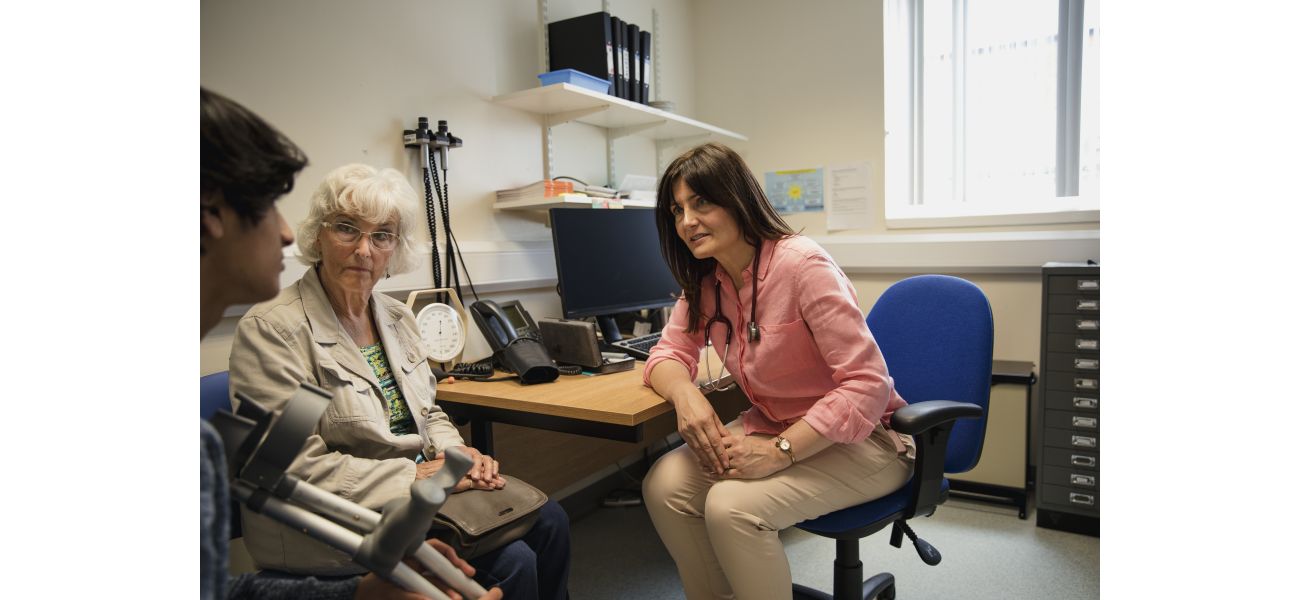Over 10 million people have had to wait a month or longer for GP appointments this year, causing a crisis in the healthcare system.
10.1% of appointments in an English region had delays of four weeks or longer.
September 15th 2024.

The recent report on the state of the National Health Service (NHS), known as the Darzi report, has brought attention to the shortage of General Practitioners (GPs) in the UK. It has been found that many individuals seeking an appointment with their GP have had to wait for over a month, and this has occurred more than 10 million times this year alone. These figures suggest that 2024 may break records for the longest wait times to see a family doctor in England.
In Gloucestershire, which is currently the worst-performing region in terms of wait times, 10.1% of appointments have involved waiting for four weeks or more. The recent report by Lord Darzi, which was highly critical of the NHS, revealed that the UK has almost 16% fewer fully qualified GPs compared to other high income countries when considered in relation to the population. The Liberal Democrats, who have produced statistics on long wait times, are calling for the NHS to be given top priority in the Labour government's first Budget at the end of next month.
Sir Ed Davey, the leader of the party, has emphasized the urgency of addressing the GP crisis in order to save the NHS. He believes that if people can be seen by their GP quicker, it will lead to fewer hospital visits, ultimately benefiting both individuals and the healthcare system as a whole. Sir Ed has proposed that individuals should have the right to see their GP within seven days, or within 24 hours for urgent matters.
The Darzi report specifically criticized the reforms implemented by former health secretary Andrew Lansley in 2012. These reforms were put into effect during the coalition government between the Liberal Democrats and the Conservatives. Health Secretary Wes Streeting has acknowledged the need for significant reform in the NHS. Lord Darzi described the reforms as a "calamity without international precedent" and "disastrous" in his rapid review of the healthcare system.
Daisy Cooper, the deputy leader and health spokesperson for the Liberal Democrats, has expressed her belief that the Lansley reforms were a mistake. She stated that during the coalition government, the Liberal Democrats fought to protect the spending on healthcare and education in real terms. Currently, the party is holding its annual conference in Brighton, where health and social care policy has been a central topic.
A spokesperson for the Department of Health and Social Care has acknowledged the neglect of general practice within the NHS and has promised to shift the focus of healthcare from hospitals to the community. The government has committed to hiring an additional 1,000 GPs by the end of this year and has allocated an extra £311 million towards GP contract funding for the upcoming year.
The Liberal Democrat conference has attracted many politicians, staff, and activists, who are all eager to discuss the party's achievement of its best ever General Election result in July. With the number of Liberal Democrat MPs increasing from 15 to 72 after the election, it is no surprise that the NHS has been a hot topic at the conference. Both Daisy Cooper and Sir Ed Davey are expected to address the issue in their speeches on Monday and Tuesday respectively. It is clear that the NHS and its future will continue to be a major concern for the Liberal Democrats.
In Gloucestershire, which is currently the worst-performing region in terms of wait times, 10.1% of appointments have involved waiting for four weeks or more. The recent report by Lord Darzi, which was highly critical of the NHS, revealed that the UK has almost 16% fewer fully qualified GPs compared to other high income countries when considered in relation to the population. The Liberal Democrats, who have produced statistics on long wait times, are calling for the NHS to be given top priority in the Labour government's first Budget at the end of next month.
Sir Ed Davey, the leader of the party, has emphasized the urgency of addressing the GP crisis in order to save the NHS. He believes that if people can be seen by their GP quicker, it will lead to fewer hospital visits, ultimately benefiting both individuals and the healthcare system as a whole. Sir Ed has proposed that individuals should have the right to see their GP within seven days, or within 24 hours for urgent matters.
The Darzi report specifically criticized the reforms implemented by former health secretary Andrew Lansley in 2012. These reforms were put into effect during the coalition government between the Liberal Democrats and the Conservatives. Health Secretary Wes Streeting has acknowledged the need for significant reform in the NHS. Lord Darzi described the reforms as a "calamity without international precedent" and "disastrous" in his rapid review of the healthcare system.
Daisy Cooper, the deputy leader and health spokesperson for the Liberal Democrats, has expressed her belief that the Lansley reforms were a mistake. She stated that during the coalition government, the Liberal Democrats fought to protect the spending on healthcare and education in real terms. Currently, the party is holding its annual conference in Brighton, where health and social care policy has been a central topic.
A spokesperson for the Department of Health and Social Care has acknowledged the neglect of general practice within the NHS and has promised to shift the focus of healthcare from hospitals to the community. The government has committed to hiring an additional 1,000 GPs by the end of this year and has allocated an extra £311 million towards GP contract funding for the upcoming year.
The Liberal Democrat conference has attracted many politicians, staff, and activists, who are all eager to discuss the party's achievement of its best ever General Election result in July. With the number of Liberal Democrat MPs increasing from 15 to 72 after the election, it is no surprise that the NHS has been a hot topic at the conference. Both Daisy Cooper and Sir Ed Davey are expected to address the issue in their speeches on Monday and Tuesday respectively. It is clear that the NHS and its future will continue to be a major concern for the Liberal Democrats.
[This article has been trending online recently and has been generated with AI. Your feed is customized.]
[Generative AI is experimental.]
0
0
Submit Comment





